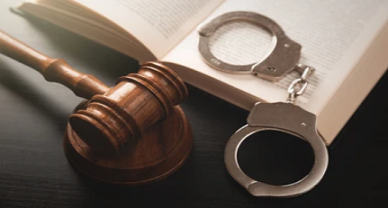Breaking Down the Influence: Three New Criminal Bills Passed by the Government
Introduction
Union Home Minister in the month of August passed three new Bills in the Lok Sabha to replace the British era laws: Indian Penal Code (IPC), 1860; Criminal Procedure Code (CrPC), 1898; and the Indian Evidence Act, 1872. The Bharatiya Nyaya Sanhita (BNS) Bill, 2023, Bharatiya Nagarik Suraksha Sanhita (BNSS) Bill, 2023, and the Bharatiya Sakshya (BS) Bill, 2023, seek to replace the IPC, CrPC and the Evidence Act, respectively.
[Image Sources: Shutter stock]
Main Blog
Key changes that are made in the Bills:
- Zero FIR’s: Under the new rule, a First Information Report (FIR) may be filed in any police station, regardless of the location of the incident. Nonetheless, the same State or Union Territory must receive the FIR. Additionally, citizens may file e-firs under the proposed law; however, the complainant must sign the report within three days of filing it online.
- Safeguard from arrest: The new law offers a new defense against arrest for people over 60, those suspected of minor offences, and those who are ill. No arrest can be carried out for a crime that carries a sentence shorter than three years without the previous consent of a police officer ranking at least as high as deputy superintendent of police (DSP).
- More police accountability: Since the law permits zero FIRs to be filed in any police station, the police will need to keep up a suitable information-sharing system by setting up a police control room (PCR). The state government will have to appoint a police officer to oversee the maintenance of records pertaining to an arrest in each district and police station. Within ninety days, the police are also required to notify any victim with the status of the investigation into their case.
- Speedy justice: The court has sixty days to formulate the charges in the case and start the trial after the police file their chargesheet. The judge must render a decision in this matter within 30 days after the trial’s conclusion, and a copy of the judgment must then be posted online within 7 days. The period for the judgment may go up to sixty days in some circumstances.
- Some more changes that were made include:
- Curbs on police power
- Release of under trials in jail
- Hit-and-Run will get you 10 years jail term
- Summary trials for speedy justice
- No more frequent adjournments
- Witness Protection
- Community as a form of punishment
- Women friendly changes
- Right to private defence
- Complete digitization of case documents
Following are the main reasons given for the introduction of these three bills:
- The main goal of the government for passing the new laws include Strengthening law and order, Simplifying legal procedures, Delivering justice and not punishment.
- The government undertook the makeover because it believed that the current criminal laws were vestiges of colonialism and needed significant revisions. The Code of Criminal Procedure is fifty years old, whereas the Indian Penal Code and the Indian Evidence Act are remnants of the colonial era.
- The goal of the 313 proposed amendments to the three criminal laws is to guarantee that those who file a case receive justice within three years.
- The new legislation will uphold justice and protect fundamental rights. The Indian spirit will be infused with these laws.
Above discussed are few of the positive changes that are made. There are always two sides to everything. Let’s some points that are not so positive:
- The bills give the government the power to decide who gets booked and who doesn’t for the same act.
- The bills give the state enhanced power to assign meanings to words and actions.
- The bills have the potential to impact free speech.
- The bills increase police powers.
- The bills have several drafting errors and inconsistencies.
- The bills were drafted by a Criminal Law Reforms Committee, 2020 that did not include any representatives from the judiciary, the bar, the civil society, or the marginalized communities.
- The bills overlook certain crucial aspects, such as marital rape.
Conclusion
The Home Minister, Amit Shah, introduced three important criminal measures that have generated a lot of talk and controversy. These proposals have the potential to significantly alter the legal system and law enforcement in the country. In summary, it is critical to thoroughly consider the effects and ramifications of these bills.
The government has maintained that these legislations are necessary to uphold law and order and improve national security, while opponents have expressed worries about possible abuses of authority and rights violations. It’s critical to make sure that these measures strike the proper delicate balance between civil freedoms and security.
These laws are a major step towards addressing the changing criminal concerns in society. Nonetheless, it is equally critical that legislators, decision-makers, and members of the public society have candid conversations in order to make any required revisions to these measures. To guarantee that these laws preserve the values of justice and fairness and safeguard individuals’ rights, public engagement and examination are crucial.
Ultimately, the effectiveness of these criminal bills will be determined by how they are implemented, how well they accomplish their stated objectives, and how they affect the lives of the people they are meant to protect. To guarantee that these measures protect individual rights and liberties while serving the interests of the country, ongoing observation and evaluation will be essential.
Author: Tanisha Gandhi, A Student at Bharati Vidyapeeth Deemed to be University, New Law College, Pune, in case of any queries please contact/write back to us at support@ipandlegalfilings.com or IP & Legal Filing



